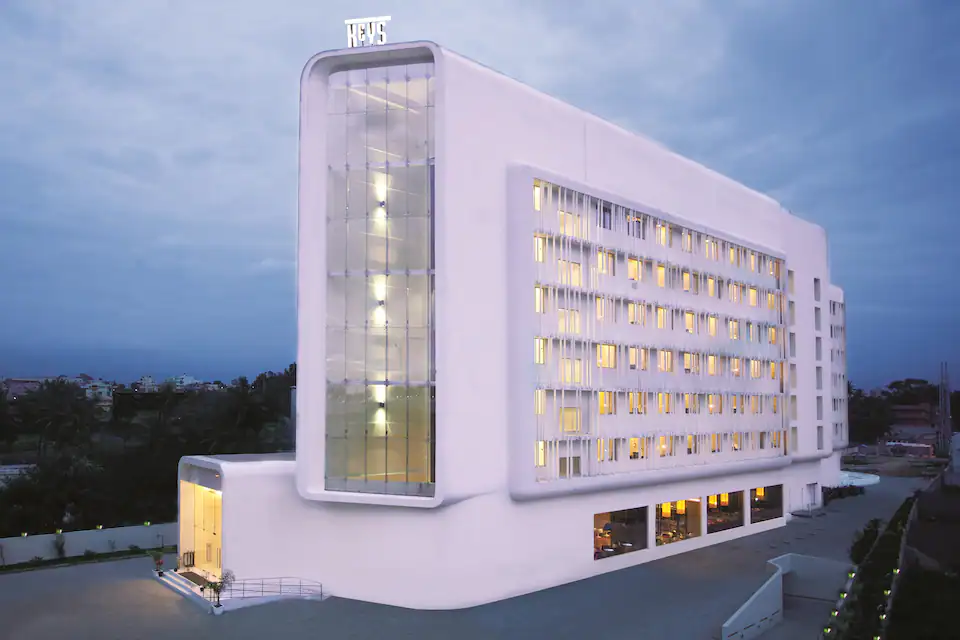
By Zahid Memon, Director-Information Technology, Keys Hotels
 Year 2020… The world was looking forward to the Olympics event in Tokyo and the T20 cricket tournament in Australia. For many, 2020 was the year of Expo in Dubai. In addition there were several other world events ranging from religious to engineering to marketing lined up. Optimism within economy and trade circles were high. But little did we know what 2020 had really in store for us.
Year 2020… The world was looking forward to the Olympics event in Tokyo and the T20 cricket tournament in Australia. For many, 2020 was the year of Expo in Dubai. In addition there were several other world events ranging from religious to engineering to marketing lined up. Optimism within economy and trade circles were high. But little did we know what 2020 had really in store for us.
The onset of 2020 saw brief political crisis in the Persian Gulf, which was soon mitigated. However, by the end of January the World Health Organization announced the outbreak of Coronavirus (COVID-19) pandemic, a disease which causes respiratory illness, as a public health emergency of international concern.
Over the months, the impact of COVID-19 is getting grimmer. The world has seen over 2 million people infected and more than 150,000 deaths. The disease is indiscriminate and has affected alike the royals and the subjects, the mighty and the weak, the rich and the poor, the classes and the masses. The world economy is headed towards a situation which may be similar to the great depression of the 1930’s.
Millions are under lock-down. Schools are closed. Travels are halted. Supply chains are disrupted. Although, we all endeavour to return back to our normal lives, but, not everyone have realized that some things will not change. Social Distancing is here to stay. It’s the New Normal.
Nonetheless, the current crisis situation has opened up opportunities for newer methods of doing routine tasks. In the era of COVID-19, technology has emerged as an effective weapon to ensure that the show goes on, however the definition of ‘business as usual’ is up for change. Nations and companies whom can migrate their operations online have already initiated this. With work processes getting digitized, the Digital Future is here to stay.
In order to keep up with commitments, governments and business organizations are encouraging their employees to work remotely from home where possible, although this method has its own considerations which may evolve over time.
The ability of working from home may sound super for many white collar workers, however, adjusting daily habits, communication style and yet being productive could be a challenge. More than the workers, it is critical for the managers to effectively lead, monitor and manage their remote teams. For successful remote working engagements, open communication, inclusion and trust between team members and leaders is crucial. Focus should shift from transparency to outcome based approach. From an organizational leadership perspective, remote working leads to Cyber Security concerns which needs to be addressed.
As the remote working matures up, organizations will see the value in enabling the digital workspaces without loss of productivity. Investment in cloud-based technologies, redundant infrastructure and Zero Trust security solutions will not require further justifications. Business continuity will be of paramount importance. Service provider contracts will be re-written with this aspect in mind.
The adverse impact may be seen on the commercial real estate costs in the near term. E-commerce had already impacted the sales of brick and mortar stores. With social distancing prevalent the shift in dinning and shopping experiences to online channels will be accelerated. Early indications are that in China individuals aged 35 and more from small towns have begun to shop online. Italy, on the other hand has seen over 80 % rise in the e-commerce transactions during the last 2 months.
As contact-free economy grows, the future projects of real estates will see a shift in consumption pattern between commercial, residential, hospitality and retail. Conformance to social distancing guidelines will be a norm while designing real estate projects. Smarter infrastructures, voice assisted and contact-less engagement will be the corner-stone of every public place. Hygiene and automated public health monitoring will be just as crucial as surveillance and fire-fighting.
Drone Delivery is deployed for COVID-19 samples and medical aids in/out of remote locations in some parts of China, Africa and Europe. The use of delivery drones for last mile delivery can be discussed and tested for long by retailers. Soon this will be the new norm for e-commerce fulfilment and food delivery.
Video conferencing has seen such a surge in usage recently. From business conferences to family get-to-gathers, it’s all happening online. Microsoft Team, Google Hangouts, Web-ex and Zoom have enormously increased their customer base. As this method of communication becomes prevalent, airline industry is set to witness disruption. Cascading effect will be seen across the travel/tourism industries.
Telemedicine services have reported significant growth in US and North Europe. The rest of the world is expected to rapidly embrace such services. Given the situation, patients and health care workers both have reasons to expand virtual interactions.
COVID-19 is changing the entertainment habits. OTT Television (Streaming TV) is now popular like never before. As an effect, the Internet usage is soaring in several geographies. Providers such as Netflix and Disney have had to adjust the quality of streaming in order to manage the Internet bandwidth resources available. Gives an opportunity for the streaming industry to introduce new standards of compression which can be more bandwidth efficient without compromising on the quality of video.
Although, online learning has been common channel of education for the professional curriculums, COVID-19 has pushed this method of education even to the primary schools. It would be interesting to see how the youngsters and their teachers cope up with the new learning methodology.
It’s a Reset…. Businesses will introspect and tweak their operating models to prepare for resilience to outside shocks and pandemics. It may be several months if not years before we reach a new equilibrium.
A new world order is in the making where greater preference will be given to local products and services compared to global products and services. Cross border trades will be more restricted. Initiatives such as ‘Make in India’ and similar will gain momentum world-wide. A new world order which will be powered by Technology and Innovation. A new world order which will be conducive for our coming generations to live and prosper.







